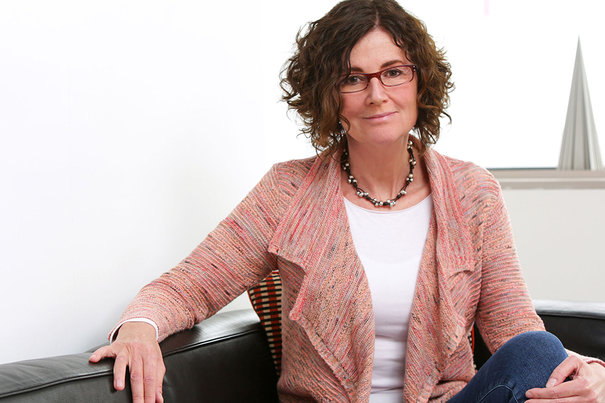Brandeis University announces Rosenstiel Award winner
The prestigious award, often a precursor to the Nobel Prize, was awarded to Professor Titia de Lange of Rockefeller University.
 Courtesy The Rockefeller University
Courtesy The Rockefeller UniversityTitia de Lange
The 47th Lewis S. Rosenstiel Award for Distinguished Work in Basic Medical Research has been awarded to Professor Titia de Lange of Rockefeller University for her studies on the protection of chromosome ends (telomeres) from degradation and rearrangement. De Lange’s laboratory identified and characterized the roles of proteins that compose the shelterin complex, which binds specifically to the special telomeric DNA sequences and maintains the stability of these ends. Her work has shown that the shelterin complex and the unusual telomere-loop structure of telomere DNA prevent these ends from being detected as broken chromosome ends and thus protect telomeres from being degraded and rearranged as are the ends at chromosome breaks.
De Lange’s work has shown that disabling different components of shelterin triggers different cellular alarms designed to detect broken and degraded DNA ends and leads to lethal chromosome rearrangements such as the fusion of chromosomes. In addition, her lab has gained critical insights into the mechanisms of cellular response to the presence of DNA damage and recently has defined processes that lead to massive chromosome rearrangements (chromothripsis) associated with many human cancers.
The Rosenstiel Award will be conferred at Brandeis University on April 12, 2018, when de Lange will present a public lecture on her accomplishments.
De Lange is the Leon Hess Professor and director of the Anderson Center for Cancer Research at Rockefeller University, as well as an American Cancer Society Research Professor. Among her many honors are the Rosalind E. Franklin Award from the National Cancer Institute, the Vilcek Prize in Biomedical Sciences, election as a foreign member of the U.S. National Academy of Sciences and as Fellow of the American Academy of Arts and Sciences. She has received the H.P. Heineken Prize for Biochemistry and Biophysics, the Breakthrough Prize and the Canada Gairdner International Award. She has been an exceptional mentor and strong advocate for women in science.
The Rosenstiel Award has had a distinguished record of identifying and honoring pioneering scientists who subsequently have been honored with the Lasker and Nobel Prizes. In 2016 Brandeis honored MIT Professor Susan Lindquist for her work on the association of protein aggregation and neurological disease. In 2015, Professor Yoshinori Ohsumi was the recipient, for his description of protein degradation through the process of autophagy; the following October Ohsumi was awarded the Nobel Prize in Physiology and Medicine. In 2014 the Rosenstiel Award was conferred on Fred Alt ’71 for his work in understanding the mechanism of genome rearrangements in immune and cancer cells. The year before, the trio of Wilfred Denk, David Tank and Walt Webb were chosen for their study of neural circuits using multi-photon microscopy. Previous winners include Stephen Elledge; Nahum Sonnenberg; David Allis and Michael Grunstein; Jules Hoffman and Ruslan Medzhitov; and John Gurdon, Shinya Yamanaka and Irving Weissman. A full list of awardees can be found here.
The Rosenstiel Award selection committee, composed of scientists from Boston-area universities, welcomes nominations for the 48th award. We especially encourage nominations of distinguished women and minority scientists. Details of the nomination process can be seen here.
Categories: Research, Science and Technology





